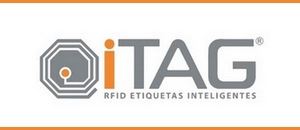Vanderlei Ferreira
E-commerce and the on-demand economy are driving companies that depend on distribution centers to increase their physical space, either by opening or expanding warehouses. This process was already underway, but it was driven by the pandemic – think of all the headlines we’ve seen about the growth of e-commerce. Recent research by Zebra Technologies indicates that nearly 90% of companies expect to expand their warehouse space and more than 80% expect to increase the number of warehouses by 2024.
Larger and more numerous warehouses create the need to modernize operations through automation technologies. In my daily life, I follow the companies’ efforts to adapt and corporate mobile devices emerge as great allies in most cases because they speed up and bring precision to tasks such as collection, packaging and loading. Furthermore, they are very intuitive and do not require lengthy training.

However, many of these devices have a Microsoft operating system, which is being discontinued, which means the end of updates and technical support and, in practice, making the use of the devices unfeasible. Thus, I have been much sought after by companies that need to look for alternatives. The best option, without a shadow of a doubt, is Android. Having seen many operations going through the transition, I always like to reassure those just starting out on this journey: a seamless migration is possible. It can even bring benefits to companies, as they would start using a system that allows for more efficiency, lower costs and more productive workers.
The first step when switching operating system is to assess and understand the current status of devices, taking into account the hardware, software, user interface and, of course, the characteristics of the warehouse where they will be used. I visit clients from different sectors and sizes and it is clear that each one has a different need.
It is also important to identify what works and what doesn’t in the operation, reconfiguring the technology to correct workflow problems and introduce new moves that bring agility to the processes. If you’ve been using the same workflows for over three years, chances are they’re not keeping up with the current speed of business. This is the time not only to think about the needs of now, but also those of the near future, with escalating activity.

And the choice of the Android operating system is ideal exactly for those who are thinking about the long term, as it brings a lot of added value. We’re talking about a streamlined, easy-to-learn user experience, applications built specifically for the platform and designed to increase productivity and management, text and voice connectivity, improved security, and location-aware solutions using BluetoothTM Low-Energy (BLE) and other technologies.
Answering the question I asked in the title, yes, the operating system matters and this is the time when decision makers must choose between staying in a stagnant system or adopting one that innovates every day. Working in this market for decades, it’s clear to me that mobile devices are essential to meeting the demands of today’s customers and a careful migration to Android is crucial to improving productivity and efficiency of operations, eliminating costly errors and delays. With the right devices in the hands of employees, warehouses are ready for anything.
Vanderlei Ferreira, vice president of sales at Zebra Technologies Brazil.



















